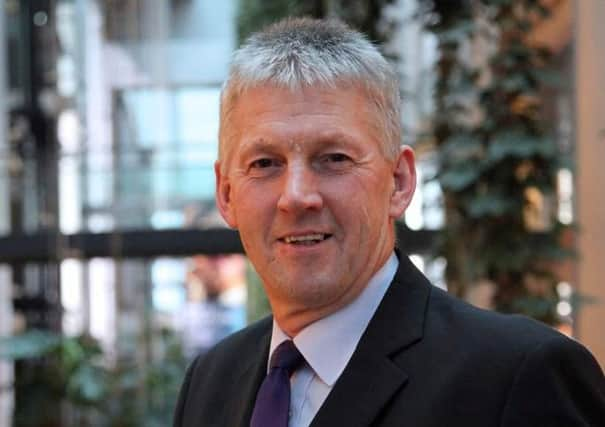Less to beef about in post-Brexit world, says George Lyon
This article contains affiliate links. We may earn a small commission on items purchased through this article, but that does not affect our editorial judgement.


With more than 20 years of dealing with Europe, both as a president of NFU Scotland and as an MEP, George Lyon yesterday spoke to delegates at the British Cattle Breeders’ conference in Telford.
Lyon, now an agri-food consultant, said that, with the UK not being self-sufficient in beef and with customers being relatively well off, farmers producing beef had a cushion not enjoyed by some other sectors of the industry.
Advertisement
Hide AdAdvertisement
Hide Ad“We have a wealthy home market for quality British beef allied to rising worldwide demand for beef products in developing countries,” he said. “The UK is currently only 75 per cent self-sufficient in beef so there are opportunities to displace imports.”
However, Lyon warned that farming was in danger of “being crunched out of sight” by other industries, such as banking and pharmaceuticals, in trade negotiations both within the EU member states and the rest of the world. With every one of the 27 remaining countries in Europe having a veto on any EU-wide trade deal, he pointed out that southern European countries were traditionally more protectionist of their markets while eastern European countries were increasingly flexing their muscles – and both these factors were potentially bad news for farmers in the UK.
At the same time, he pointed out that, on the home front, farming leaders would face major battles in holding on to the current support system cash. The most likely scenario south of the Border suggested that direct support would be phased out with future subsidies being linked to environmental priorities along with insurance schemes for returns from the market – a market which would likely be far more open to imports than previously.
However, in a split on farm policy within the UK, Scottish farmers, and especially those in less favoured areas, might, in a post-Brexit world, enjoy targeted support.
But whatever schemes are brought forward both in England and Scotland, Lyon said the battle for cash for the industry against competing claims from high-profile sectors of the economy such as health and education would only intensify in a future outside the EU.
With many of those farmers who had voted for Brexit stating they wanted less red tape, Lyon agreed that getting rid of the “one-size-fits-all” common agricultural policy (CAP) while developing a flexible and targeted set of policies for the UK could provide a framework for the beef industry to increase productivity and grow.
“We should be able to simplify some of the burden of regulation and rules that currently make life difficult for farmers,” he said.
Advertisement
Hide AdAdvertisement
Hide Ad“With CAP support guaranteed by the UK government through to 2020, UK farmers can, I believe, look forward to a period of relative stability. However, this may well be a honeymoon period before the storm breaks.”
